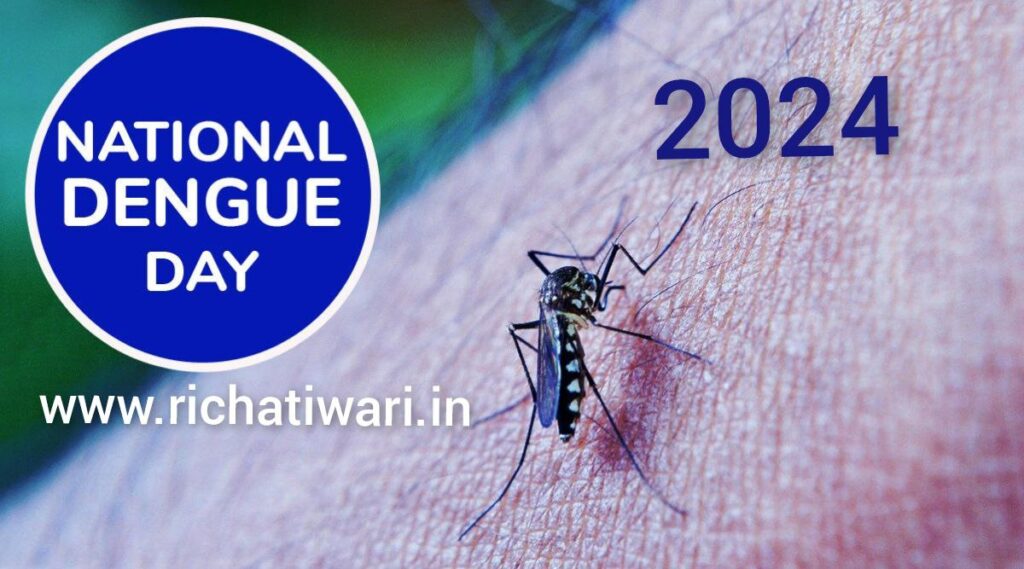Every year, National Dengue Day is observed on May 16 to spread awareness about dengue, which is a viral disease caused by mosquitoes. It is a global epidemic, prevalent in over 100 countries, with close to half of the world’s population at the risk of contracting,Dengue is a viral infection that requires careful management, especially regarding nutrition and hydration. Here are some dietary recommendations and information on beneficial herbs and foods to avoid for dengue patients: Diet Recommendations for Dengue Patients Hydration-Fluids: Maintaining hydration is crucial. Drink plenty of water, oral rehydration solutions, coconut water, and fresh fruit juices. Nutrition- Fruits: Eat vitamin-rich fruits like oranges, papayas (papaya leaf juice is particularly noted for its potential to increase platelet count), kiwis, strawberries, guavas, and pomegranates.- Vegetables: Include green leafy vegetables, carrots, and cucumbers.- Protein: Consume protein-rich foods like lentils, beans, eggs, and lean chicken.-Grains: take easily digestible grains like rice and oats.Imp Herbs for Dengue Patients1. Papaya Leaves: Extract from papaya leaves is believed to help increase platelet count.2. Giloy (Tinospora cordifolia): Known for its immune-boosting properties.Giloy reduces the symptoms of Hay fever which is also known as allergic rhinitis. It reduces the symptoms like nasal discharge, sneezing, nasal itching, nasal obstruction. It also increases the count of the leukocytes (white blood cells) to fight against infection[3. Tulsi (Holy Basil): Has antiviral and immune-boosting effects.The leaves of tulsi might help with fevers. Tulsi leaves boiled with tea might be helpful for malaria and dengue. A decoction of tulsi leaves boiled with powdered cardamom in water and mixed with sugar and milk to help with acute fevers. The juice obtained from tulsi leaves might help bring down the fever.4. Neem: Known for its antiviral properties.Neem leaves have shown to increase both blood platelets and white blood cell platelet count, two of which are the worst side effects of dengue fever. The plant is said to have chemicals named nimbin and nimbidin, which have anti-inflammatory, anti-pyretic and anti-microbial properties.5. Fenugreek Seeds and leaves: Can help with fever management and promoting relaxation. Foods to Avoid for Dengue Patients and Fenugreek leaves: Fenugreek leaves help in reducing the pain of the patient and help in restful sleep. It reduces the level of fever stabilizing the blood pressure and heartbeat of the patient.- Oily and Fried Foods: Difficult to digest and can strain the liver.- Spicy Foods: Can irritate the stomach lining and exacerbate symptoms.- Caffeinated Beverages: Can lead to dehydration.- Processed Foods: Often contain additives and preservatives that are hard to digest and can weaken the immune system.Alcohol: Should be avoided as it can cause further dehydration and liver strain. General TipsRestl: Ensure ample rest to help the body recover.- Monitor Symptoms: Keep track of any signs of dehydration, bleeding, or persistent fever, and seek medical attention if they occur.
